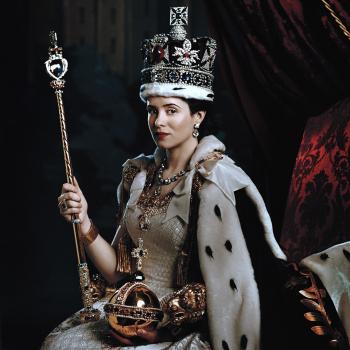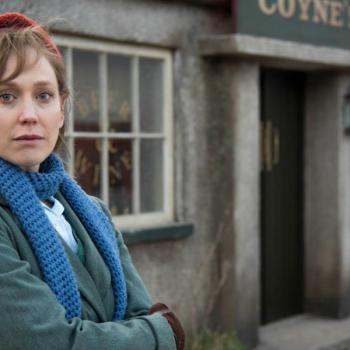 Among the variety of strange notions that we get into our heads, one of the most common is the sensation that we’re being watched. For no apparent reason, we begin to glance around us, not really expecting to find anything, and yet compelled to look anyway.
Among the variety of strange notions that we get into our heads, one of the most common is the sensation that we’re being watched. For no apparent reason, we begin to glance around us, not really expecting to find anything, and yet compelled to look anyway.
“It’s nothing,” we say, and turn our attentions back to the task at hand.
It’s also one of the tell tale signs of a transient madness, to believe that something is stalking us—lurking near, slipping from tree to tree. When we’re upstairs, we hear footsteps downstairs. Even the not-so-mad have bouts of paranoia, suspecting that we’re being talked about, that others have some secret agenda that bodes us ill, or possess some furtively-gained knowledge that they have no business knowing.
The shades go down further, out of a fear that at some vulnerable moment, we have left them up too far—that in a careless bit of morning, or a negligent trace of night, we have left ourselves exposed, not for long, but for long enough. The guilty soul cowers at the unspoken, unspeaking threat of an apocalypse that will reveal it for what it truly is.
But that too passes. We forget the sensation when the razzle-dazzle of life intrudes. Calliopes are distracting, providing the comfort of color, music, and above all, movement. Who frets when caught within its currents, amidst its familiar and comforting repetitions? In fact, it’s always rather a surprise when it begins to slow, when the song starts to fade, when the lights dim and finally go out.
Then a voice comes from a place unseen; an authority that has been watching us all along, hidden but aware. And it tells us that things are over now, that it’s time to rise and leave.
Our great playwrights have used this universally-acknowledged sensation to full effect. The characters in Tom Stoppard’s The Real Inspector Hound and Rosencrantz and Guildenstern are Dead, among others, break the plane between reality and pretense as casually as though they’re passing through a turnstile. The latter play is, of course, derivative of the great master, for the conceit of “players on a stage” is Shakespeare’s favorite. The opening line of his tragedy Hamlet, rife with meta-dramatic allusions, has one of the guards ask—as though sensing he’s being watched by an audience: “Who’s there?”
One of our most profound tragedies is that we forget that we’re only in a play. We’re like performers who have lost sight of the fact that we’re merely speaking lines, that the furniture and lights are just stagecraft. Without cause, we begin to believe in our scripts.
For characters are never aware that there’s a last page coming, that there’s a Scene V followed by a fade to black. They “act” as though they’ll live and move and have their being forever, on this little platform, underneath this gentle arch. They never see the curtain rise, so they never fear the curtain falling.
Some, however, awake from this delusion. Some—saints, I think—know that they’re in a play, but also know that there’s something very real about it. And what’s real is not the other performers, or the setting, or the plot—none of the things that captivate us, trick us. Instead, they catch on to the point of it all.
The metaphors that transcend our small, time-shaped roles, are what they pay attention to—the things that point to the eternal verities—faith, hope, love, courage, perseverance—all the things we speak of when we reflect upon a drama that we’ve beheld, and ask: “What was it really all about?”
If we could only understand that, and understand it not while we behold it from afar, but while we’re in the very midst of the production—while we ourselves are being watched—then perhaps we could enact our roles correctly. The play’s the thing, indeed.
So how do we do this well?
Hans Urs Von Balthasar’s theory of theo-dramatics explains our existence in terms of the human drama and what it reveals about life’s meaning. Philosopher Joel Garver sums up one dimension of the theory in this way:
Drama finds its expression in the life of the Trinity—the author is the Father, the actor is the Son, and the director is the Spirit. But in redemptive history, Christ is the chief actor and we are called to be co-actors with Him. The basic thrust of Balthasar’s discussion is that only by our insertion into the authentic acting of Christ—that is, a mission that overcomes the duality between self and role—are we freed to become true persons ourselves.
Our authenticity turns upon that incorporation—upon our heart’s investment in the eternal importance of every temporal act—upon its awareness of what it means to our salvation. We may move among pasteboard set pieces, tread above footlights that pass for a sun, but our acts can have real significance if we know what they are for and what we do in accomplishing them.
Otherwise, we are worse than heedless. We are fools caught in a farce, who don’t know that nothing we do matters except for why we do it.
It is a fool’s lot to be shocked, to find out that the story has ended, and that it was, in the end, only a few short acts long.
But how often we prove to be just such fools. We behave as though this narrative will go on forever, forgetting that the crowns are only props, the cheers, only echoes, and that the star billing can be—will be—erased, when the drama is over.
We must remember, as we play, that there is, in fact, a writer; there is, indeed, a watcher.
“Do you ever have that funny feeling that you’re being…” others may well ask.
Yes. I do. And it’s because I am.
A.G. Harmon teaches Shakespeare, Law and Literature, Jurisprudence, and Writing at The Catholic University of America in Washington, D.C. His novel, A House All Stilled, won the 2001 Peter Taylor Prize for the Novel.











